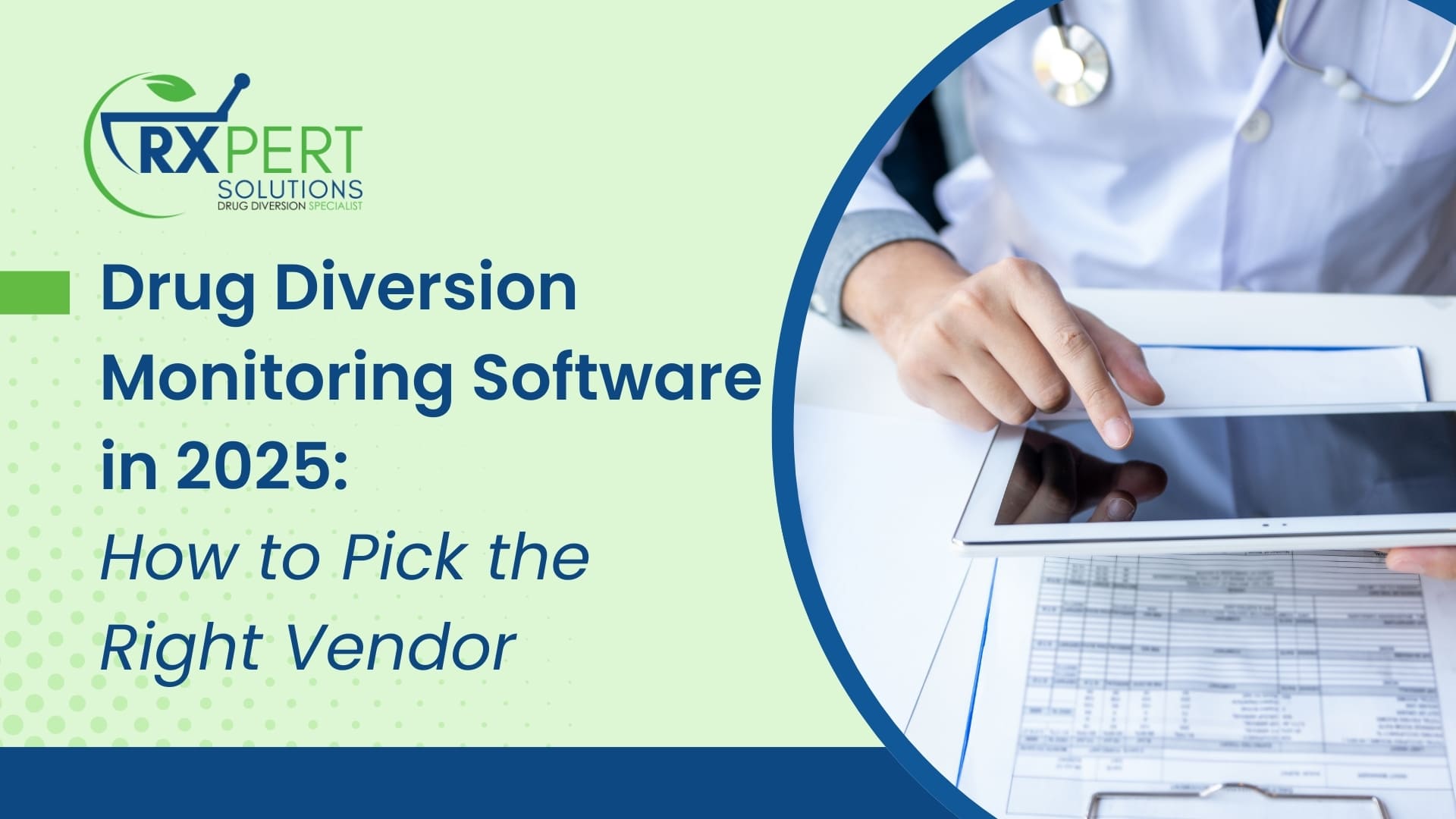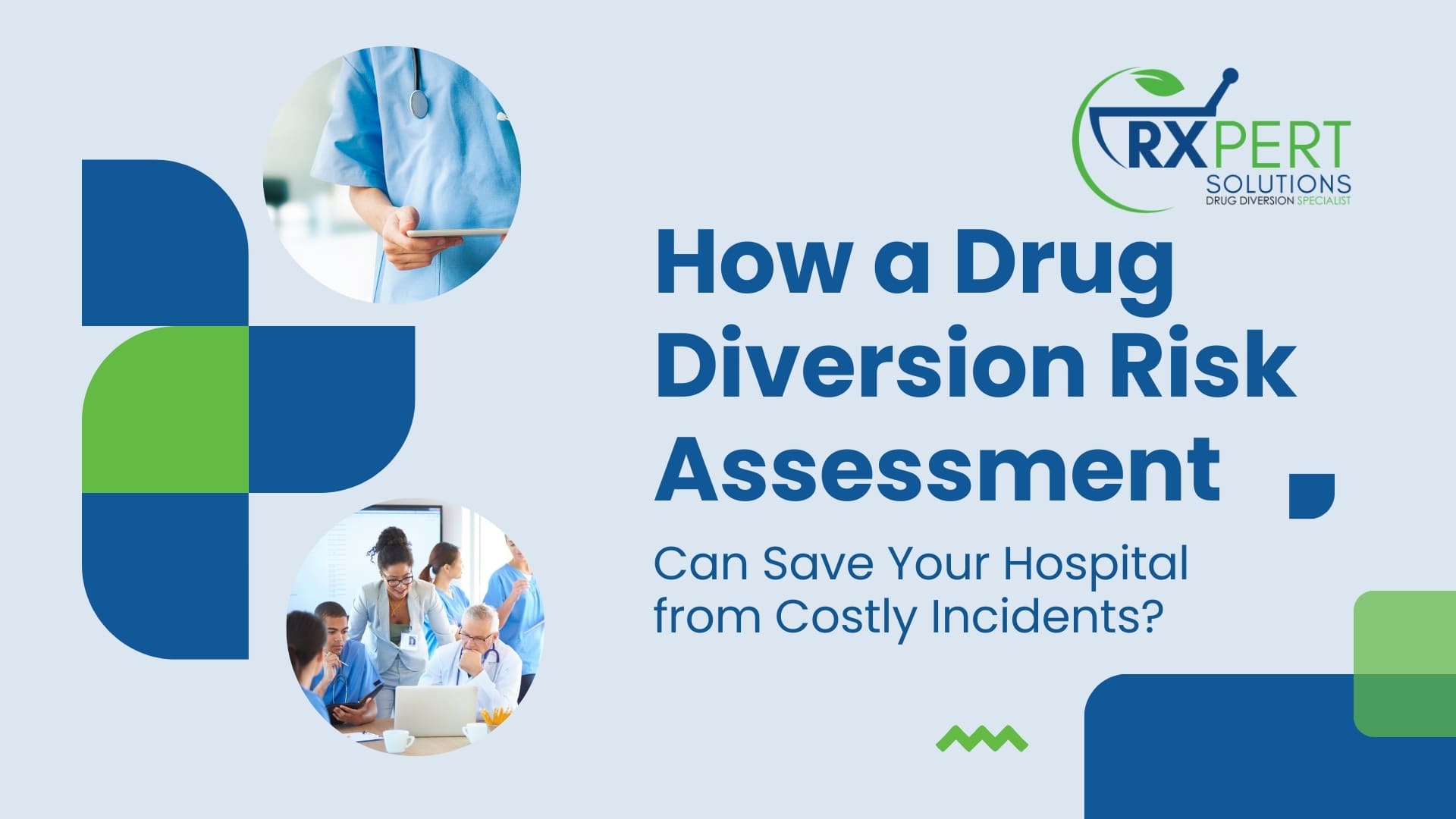I have said it before. Hospitals have an obligation from a regulatory standpoint as well as a patient safety standpoint to monitor for drug diversion. The content of this blog is straight out of the Centers for Medicare and Medicaid Services State Operations Manual. There are additional state or federal agencies that speak to the requirement for monitoring and reporting of controlled substance activity, but today we’ll focus on CMS only. My hope is it will serve as a reminder for leadership that diversion monitoring is not optional and needs to be proactive.
§482.25 Condition of Participation: Pharmaceutical Services
The hospital’s pharmacy service must ensure safe and appropriate procurement, storage, preparation, dispensing, use, tracking and control, and disposal of medications and medication-related devices throughout the hospital, for both inpatient and outpatient services.
§482.25(a)(3) – Current and accurate records must be kept of the receipt and disposition of all scheduled drugs.
Interpretive Guidelines §482.25(a)(3). include: The hospital system is capable of readily identifying loss or diversion of all controlled substances in such a manner as to minimize the time frame between the actual loss or diversion to the time of detection and determination of the extent of loss or diversion?
Survey Procedures §482.25(a)(3). include: Determine if facility policy and procedures minimize scheduled drug diversion.
§482.25(b) Standard: Delivery of Services In order to provide patient safety, drugs and biologicals must be controlled and distributed in accordance with applicable standards of practice, consistent with Federal and State law.
Interpretive Guidelines §482.25(b) Drugs and biologicals must be controlled and distributed in accordance with applicable Federal and State laws and regulations, and in accordance with applicable standards of practice. Applicable standards of practice include compliance with all Federal and State laws, regulations, and guidelines. The procedures established to prevent unauthorized usage and distribution must provide for an accounting of the receipt and disposition of drugs subject to the Comprehensive Drug Abuse Prevention and Control Act of 1970.
482.25(b)(1) – All compounding, packaging, and dispensing of drugs and biologicals must be under the supervision of a pharmacist and performed consistent with State and Federal laws.
Interpretive Guidelines §482.25(b)(1) include:
- Dispensing of Medications- Medications must be dispensed by the hospital in a manner that is safe and meets the needs of the patient
- Quantities of medications are dispensed which minimize diversion and potential adverse events while meeting the needs of the patient
§482.25(b)(2)(ii) – Drugs listed in Schedules II, III, IV, and V of the Comprehensive Drug Abuse Prevention and Control Act of 1970 must be kept locked within a secure area.
§482.25(b)(7) – Abuses and losses of controlled substances must be reported, in accordance with applicable Federal and State laws, to the individual responsible for the pharmaceutical service, and to the chief executive officer, as appropriate.
Survey Procedures §482.25(b)(7) include:
- Review reports of pharmaceutical services to determine if there are reported problems with controlled drugs and what actions have been taken to correct the situation.
- Determine if controlled drug losses were reported to appropriate authorities in accordance with State and Federal laws.





